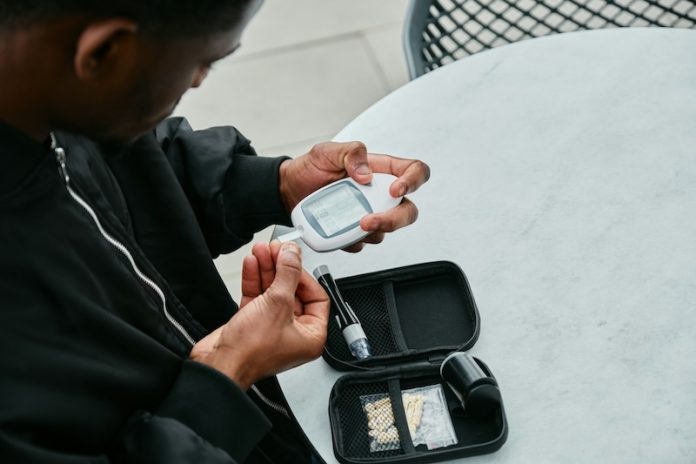
For years, medical guidelines have focused on weight loss as the main strategy for preventing type 2 diabetes in people with prediabetes. The standard recommendation, especially in the U.S., is to lose at least 7% of body weight to lower the risk of developing full-blown diabetes.
However, despite these efforts, the number of diabetes cases worldwide continues to rise rapidly, especially in low-income countries.
Now, two diabetes experts, Prof. Andreas Birkenfeld and Prof. Viswanathan Mohan, argue that simply focusing on weight loss is not enough. Instead, they propose a new goal: glycemic remission—a return to normal blood sugar levels—rather than just weight reduction.
Their proposal, published in Nature Reviews Endocrinology, suggests that diabetes prevention strategies should focus on achieving normal blood sugar regulation through lifestyle changes.
What is Prediabetes and Why Does It Matter?
Prediabetes is the stage before type 2 diabetes, where blood sugar levels are already elevated but not yet high enough to be classified as diabetes. It is the biggest risk factor for developing type 2 diabetes. Without intervention, many people with prediabetes will eventually develop diabetes, increasing their risk of heart disease, kidney damage, and other complications.
The traditional approach to preventing diabetes in people with prediabetes has been weight loss and exercise. While this is effective for many, the fact that diabetes rates continue to increase suggests that more needs to be done.
Can Blood Sugar Remission Be a Better Goal?
Birkenfeld and Mohan argue that normalizing blood sugar levels should be a key goal in diabetes prevention, not just weight loss. Their argument is based on findings from two major studies:
- The Prediabetes Lifestyle Intervention Study (PLIS) in Germany
- The U.S. Diabetes Prevention Program (DPP)
These studies showed that around 40% of people with prediabetes who lost at least 5% of their body weight were able to restore their blood sugar levels to normal. This means that their prediabetes effectively “disappeared” (remission), and they had a 73% lower risk of developing diabetes over the next two years.
However, not everyone who lost weight achieved remission. Some people still had prediabetes despite losing weight, suggesting that weight loss alone may not be enough for everyone.
Why Do Some People Achieve Remission and Others Don’t?
The researchers found that the key to achieving remission was not just weight loss, but also where the weight was lost from. Specifically, reducing visceral abdominal fat (fat around internal organs) and improving insulin sensitivity were crucial factors.
Their hypothesis is that achieving remission depends on how much insulin resistance improves. If insulin resistance is reversed early enough—before the insulin-producing beta cells in the pancreas are permanently damaged—then normal blood sugar levels can be restored.
This means that prediabetes might be a critical window of opportunity to prevent long-term damage and reduce the risk of diabetes.
Is Remission More Effective Than Weight Loss Alone?
To answer this question, the researchers examined 480 participants from the Diabetes Prevention Program (DPP) who had prediabetes and had lost at least 7% of their weight through a one-year lifestyle program.
- 114 people achieved remission (their blood sugar returned to normal).
- 366 people still had prediabetes despite weight loss.
The results showed that people who achieved both remission and weight loss of 7% or more had a 76% lower risk of developing type 2 diabetes over the next six years. This was better than weight loss alone.
What Should Be Done Next?
The authors suggest that medical guidelines should shift focus from just weight loss to achieving remission of prediabetes. This means:
- Weight loss should still be a priority, but people who do not achieve remission after losing 7% of their body weight should aim to lose more.
- Other strategies may be needed for people who do not reach remission with weight loss alone, such as specific diet plans, medications, or other interventions.
- More research is needed to confirm whether achieving remission also reduces long-term diabetes complications.
According to Prof. Birkenfeld, focusing on prediabetes remission instead of just weight loss could be a game-changer. “If we can prevent type 2 diabetes by restoring normal blood sugar regulation, we may be able to slow down the rising global diabetes epidemic,” he said.
Final Thoughts
This research highlights a new approach to diabetes prevention. While losing weight is still important, the real goal should be restoring normal blood sugar levels. Achieving prediabetes remission could significantly reduce the risk of type 2 diabetes, potentially offering millions of people a better chance at a healthier future.
If you care about diabetes, please read studies about bananas and diabetes, and honey could help control blood sugar.
For more health information, please see recent studies about Vitamin D that may reduce dangerous complications in diabetes and results showing plant-based protein foods may help reverse type 2 diabetes.
The research findings can be found in Nature Reviews Endocrinology.
Copyright © 2025 Knowridge Science Report. All rights reserved.



